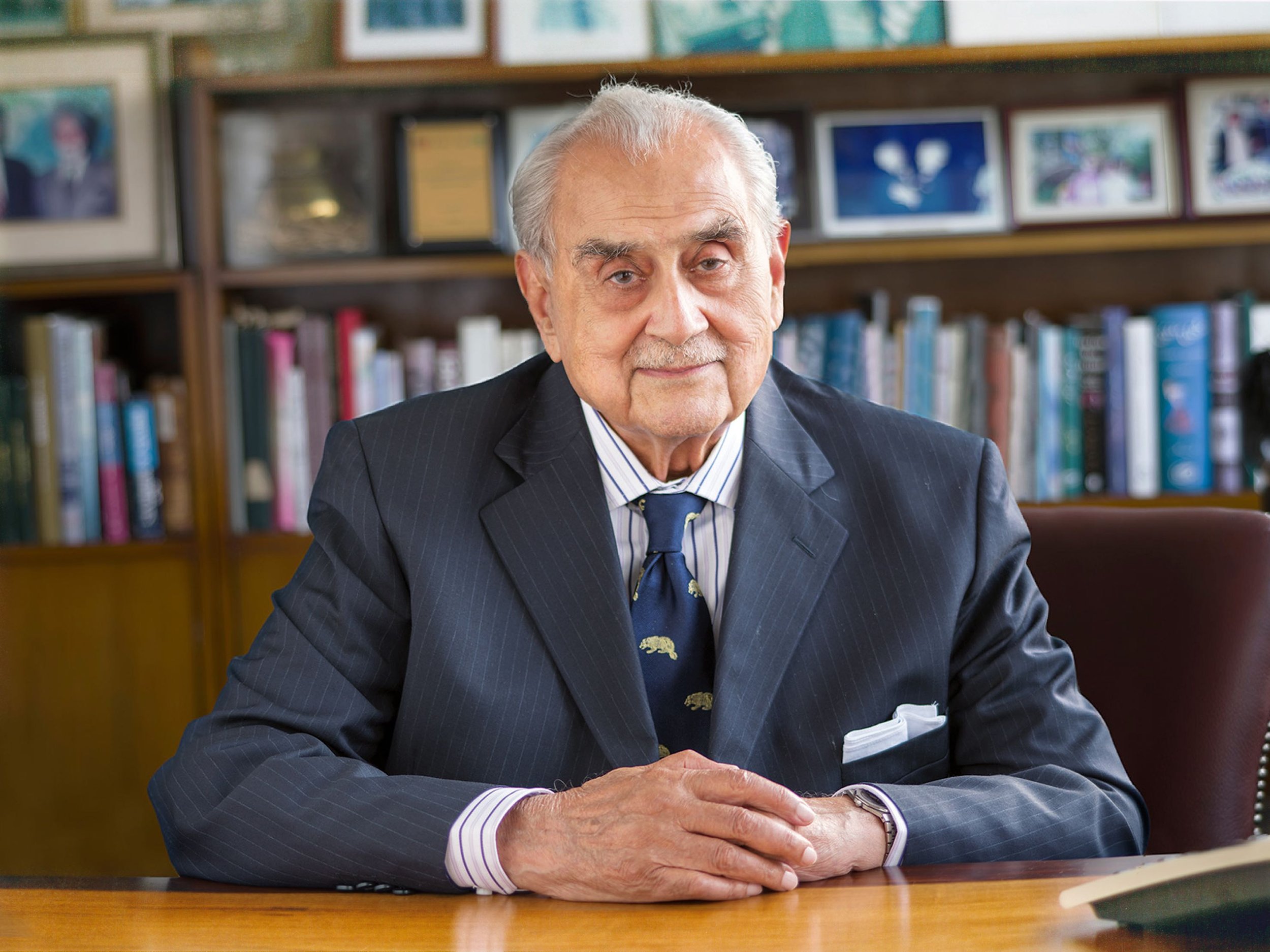Evidence-based practices from Spirituality, Positive psychology, Arts, Creativity and Education (SPACE) help shift the focus from what is wrong to enhance what is strong in people and communities. We work to turn evidence into impact and drive forward our mission of enabling whole person well-being so that individuals and organizations can flourish and thrive by cultivating a life of meaning and purpose.

BrainSPACE is a social enterprise in Pakistan focused on designing and delivering interventions that impact health, well-being and social progress. Using a translational approach to scientific research from neurotheology; spirituality and mindfulness; positive neuropsychology; neuroarts; creativity; and education, BrainSPACE provides innovative adaptability in context, practice and outreach to amplify the impact of evidence.
Vision: Cultivate the spirit-mind-body connection to propel human flourishing.
Purpose: Enable whole person well-being (i.e. physical, mental, emotional, spiritual and social) for individuals and communities to thrive and lead a life of meaning and purpose.

From evidence to impact. BrainSPACE helps people and communities flourish.
Mentors
Syed Babar Ali
Syed Babar Ali is a renowned Pakistani businessman, entrepreneur, educationist and philanthropist who has gained global recognition for his incomparable impact in the fields of education, business, politics, culture, and environmental conservation.
Babar Ali is the founder of Packages Limited, Nestlé Pakistan Limited, and Lahore University of Management Sciences, a premier higher education institution in Pakistan. He serves as Chairman for Hoescht Pakistan Ltd., Tetra Pak Pakistan Ltd., Tri-Pack Films Ltd., Coca Cola Beverages Pakistan Ltd., and IGI Holdings Limited.
Syed Babar Ali has also been the Founding President of World Wildlife Fund (WWF)-Pakistan and later became the International President of WWF. His philanthropic initiatives include Babar Ali Foundation founded in 1985. Babar Ali has served on the boards of various health institutions throughout his life. Due to his interest in art and art education, Babar Ali helped set up NAQSH– an art school in the Walled City of Lahore– in 2003, which aims to provide training in various art forms that can be leveraged as marketable skills. Babar Ali is the author of Learning from Others.
Nisha Sajnani
Nisha Sajnani, PhD is a co-founding co-director of the Jameel Arts & Health Lab, a collaboration between New York University's (NYU) Steinhardt School of Culture, Education, and Human Development, the World Health Organisation (WHO), Culturunners, and Community Jameel, where she leads the Lancet global series on the health benefits of the arts.
Dr. Sajnani is an associate professor and director of the NYU program in drama therapy and the chair of the NYU Creative Arts Therapies Consortium. Other faculty appointments include NYU Abu Dhabi where she developed a trans-disciplinary course titled Can Art Save Lives?, uniting current evidence for the health benefits of the arts with practice and policy, the NYU Stern School of Business where she teaches Improvisation and Leadership, and the Harvard Program in Refugee Trauma where she lectures on the role of the arts in supporting the wellbeing of people who are forcibly displaced.
Nisha received her PhD in interdisciplinary studies, combining drama therapy and community economic development, from the School of Community and Public Affairs at Concordia University in Montreal. An award-winning author, educator, and advocate, her body of work explores unique ways in which aesthetic experience can inspire equity, care and collective human flourishing across the lifespan.
Advisory Council
-
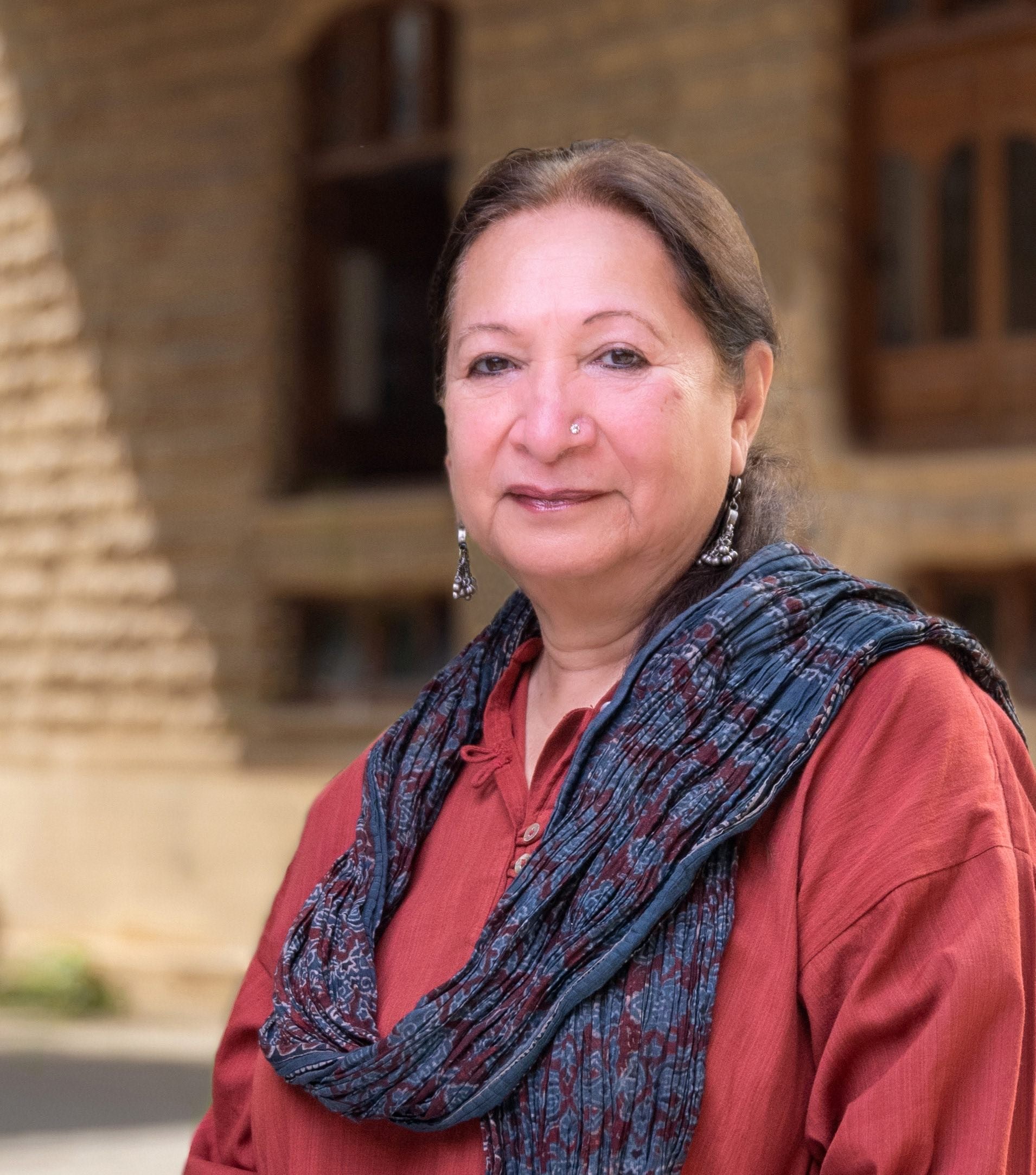
Shehnaz Ismail
Shehnaz Ismail is the Founder and Dean, Faculty of Design at The Indus Valley School of Art and Architecture (IVS). She has spent most of her life working in academia and has led the Textile Design department at IVS, since its inception. Shehnaz serves on various boards and academic committees including the National College of Arts, Aurat Foundation, MUET Jamshoro, BNU Lahore, AHAN (one village one craft) and on the Senate of Pakistan Institute of Fashion and Design, Lahore. In recognition of her academic achievements and professional expertise for her work in visual art and education, she has been awarded the President’s Pride of Performance in 2014 and was made an Associate of the National College of Arts, Lahore. Shehnaz has undergraduate and postgraduate degrees from the National College of Arts and Hornsey College, London in Textile Design. She currently holds the title of Professor Emeritus at the Indus Valley School of Art and Architecture and serves as adjunct faculty in the department of Textile Design.
-

Kunle Adewale
Kunle Adewale is a multimedia artist, scholar, educator, curator, cultural producer, mental health advocate, and arts in health practitioner based in Manchester, UK.
Kunle is a member of the Steering Committee of WHO-Jameel Arts and Health Lab, a global arts and health movement. He is also a member of the WHO Arts and Wellbeing Cohort, Developing Resource on Arts Practice, and the Ethics of Care. He is the founder of Arts in Medicine Projects and the Global Arts in Medicine Fellowship through which professionals from over 50 countries across the globe have been trained in the field of arts and medicine.
As a humanitarian artist, Kunle’s art engagements have benefitted various populations. He has been an Atlantic Fellow for Equity in Brain Health at the Global Brain Health Institute, UCSF. He has received global recognition in the field of arts and culture for health and well-being.
-

Dr. Basmaa Ali
Dr. Basmaa Ali is a board-certified internal medicine physician who focuses on big data and AI in medicine. She is also an instructor at Harvard Medical school where she works on culturally congruent care. Since 2015, she has worked with Professor Thomas Heldt at MIT on building a migraine data-library to predict migraine episodes before they happen. She is a graduate of King Edward Medical College and has an MBA from MIT Sloan School of Management. Currently Dr. Ali is a resident scientist at the School of Science and Engineering at Lahore University of Management Sciences where she is focused on building a data-platform for chronic diseases with episodic exacerbations as well as an AI-enabled physician’s assistant. Dr. Ali is the founder of Zanjabee Integrative medicine in Boston, a medical practice that used lifestyle as a therapeutic tool and melded principles of ayurveda with those of western medicine for holistic treatment of its patients.
Founder & Managing Director
Fatin Khalil
Fatin Khalil is an interdisciplinary professional whose work convenes at the intersection of arts and science; advocacy and entrepreneurship.
Fatin has over a decade long experience in advertising, branding and marketing. After being part of several iconic campaigns and brand identities, Fatin founded ZeyrZabr in 2010 to provide services for commercial brands and cause-based non-profits. In 2018, Fatin took up a cause close to her heart and launched Kolachi Mehndi–Pure, Natural, Chemical-free™ henna– to revive the tradition of mehndi and change Pakistan’s market practice of using chemical cones that are hazardous for health. Through product innovation, consumer education and artist engagement, Kolachi Mehndi has elevated an age old religio-cultural tradition into an expressive art form and propelled the formation of a natural henna industry in Pakistan.
Fatin has a Master’s from Columbia University in Spirituality, Mind, Body-Psychology in Education, 2022. She graduated summa cum laude with an Associates in Merchandising from Rhode Island in 2003 and joined Indus Valley School of Art & Architecture (IVS) in Karachi from where she graduated with Distinction in Communication Design in 2007. Fatin has served as adjunct faculty at IVS. She is certified in Pranic Healing and Arhatic Meditation from the Institute for Inner Studies, Inc. Fatin has presented a research paper at the International Conference for Spirituality and Psychology, 2023.
Focusing on neuroscience and positive psychology during her time at Columbia University, Fatin’s aim was to integrate her background in arts, design and creativity with research in health sciences. With BrainSPACE, Fatin intends to apply her experience in finding creative solutions to clarify complicated science and translate evidence into impact.
Visit FatinKhalil.com to know more.
Using evidence-backed research to facilitate human flourishing.

SPIRITUALITY
Revolutionary research from MRI, EEG studies, genetics, and epidemiology has helped illuminate that humans are innately wired with a capacity for spirituality and the spiritually engaged brain is a healthier brain (Miller, 2021) with a strong correlation to quality of life. Whether it be based in a faith tradition or of a secular nature, spirituality alters brain functional activity and can make our brains more resilient against depression through structural changes such as cortical thickening; can buffer the effects of stress and anxiety; and positively impact our health and well-being (Newburg, 2012).
“An engaged spiritual life enhances grit, optimism, and resilience while providing insulation against addiction, trauma, and depression. Loss, uncertainty, and even trauma are the gateways by which we are invited to move beyond merely coping with hardship to transcend into a life of renewal, healing, joy, and fulfilment.”
Dr.Lisa Miller- Founder of the Spirituality, Mind, Body Institute at Columbia University; professor of psychology & education; NYT bestselling author
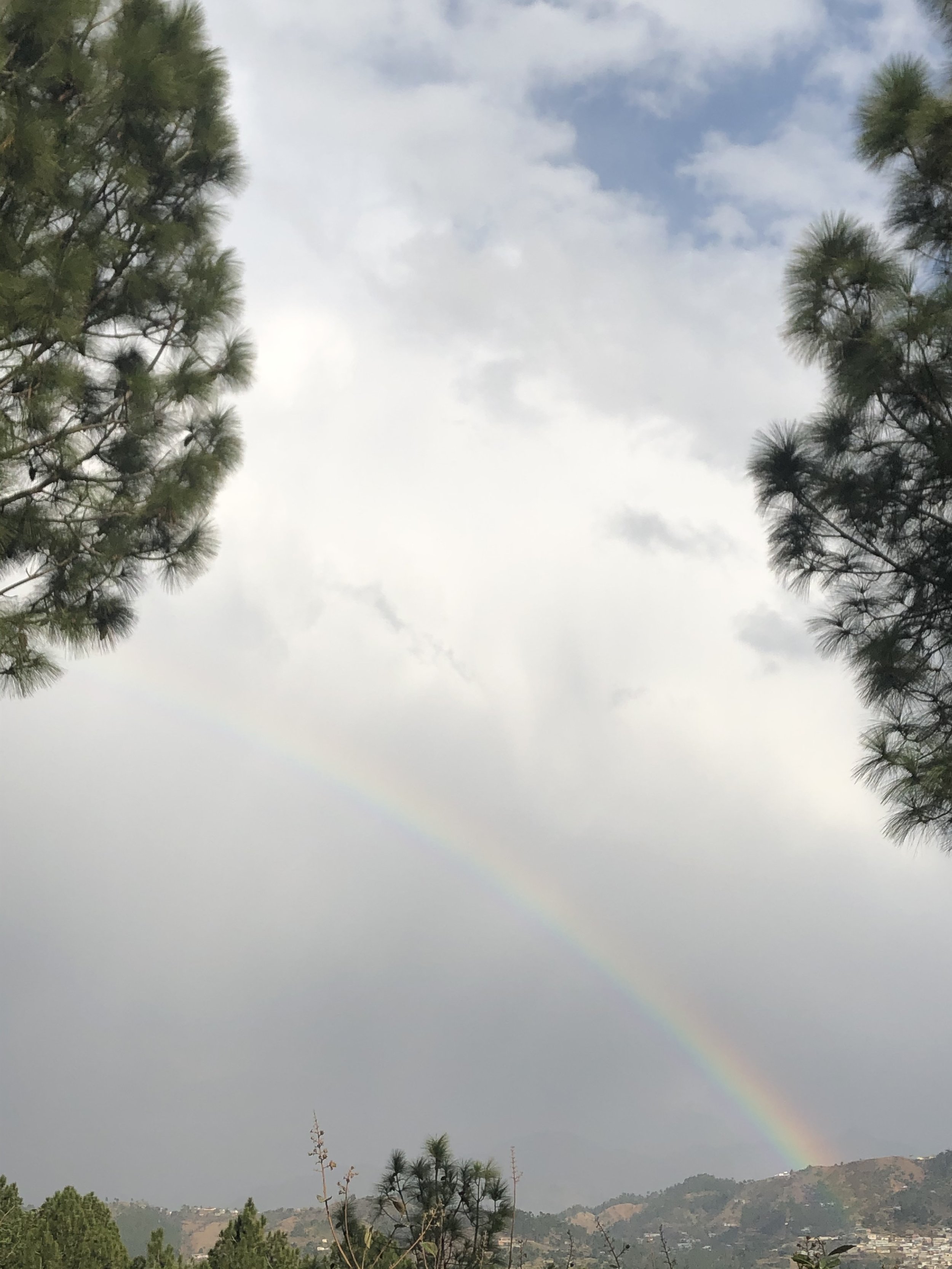
POSITIVE PSYCHOLOGY
The science of studying positive emotions, engagement, relationships, meaning and accomplishment (PERMA+ Model of Well-Being) reveals significant direct associations with physical health, vitality, job and life satisfaction (Kern et al., 2014). Brain science helps understand the neural mechanisms involved in cognitive activities and the experience of emotion which has interactions at the neurophysiological level and effects neurochemicals, brain structures, networks and processes and cognitive control functions (Alexander et al., 2021). Deciphering the scientific basis behind aspects of thriving and flourishing has contributed to developing evidence-based strategies that enhance the experience of positive emotion and influence overall well-being.
“Positive emotions which can be so subtle and fleeting, can broaden our awareness in the moment making us more receptive and more creative. They can add up over time to help us become better informed, healthier, socially adept, and resilient which can enhance overall well-being.”
Barbara Fredrickson, PhD- Kenan Distinguished Professor at UNC-Chapel Hill; director of the PEP Lab; principal investigator on psychophysiology of positive emotions; author of Positivity

ARTS
The arts employ mind and body in various ways which lead to measurable psychological, physiological, social, and behavioral outcomes that have an impact on health prevention, promotion, management, or treatment, making the arts an essential tool to improve wellness (Fancourt, 2019). There is evidence that engaging with artistic activities can enhance one's moods, emotions, psychological states as well as physiological parameters (Stuckey & Nobel, 2010).
“Arts interventions can help improve health and well-being, contribute to the prevention of a variety of mental and physical illnesses and support in the treatment or management of a range of acute and chronic conditions arising across the life-course. Arts interventions are often low-risk, cost-effective, integrated and holistic treatment options for complex health challenges to which there are no current solutions”.
WHO-Health Evidence Network synthesis report, 2019

CREATIVITY
Various studies have found a bidirectional relationship between creativity and well-being. Creativity activates conceptual semantics, neural connectivity, and facilitates the release of neurotransmitters such as dopamine (Zaidel, 2014) all of which directly or indirectly influence mood and state of mind. Creative engagement not only reduces depression and isolation, but can also help people with dementia (Hanneman, 2006). Creative imagination shows up on brain scans as increased activity in the left prefrontal cortex which is linked to clarity and optimism and decreased activity in areas of the brain that cause worry and fear (Newburg, 2017).
“Being well is not always about feeling good. It also involves continually incorporating more meaning, engagement, and growth in one’s life. We all have the potential to be creative and live creatively as a way of being. Creative people have a heightened sense of awareness, openness to experience, a well-developed intuition, and highly-developed rationality. The Creative Life appears to be associated with a more meaningful life.”
Scott Barry Kaufman, PhD- scientific director of The Imagination Institute at UPenn; empirical researcher on creativity and intelligence; author of Wired to Create
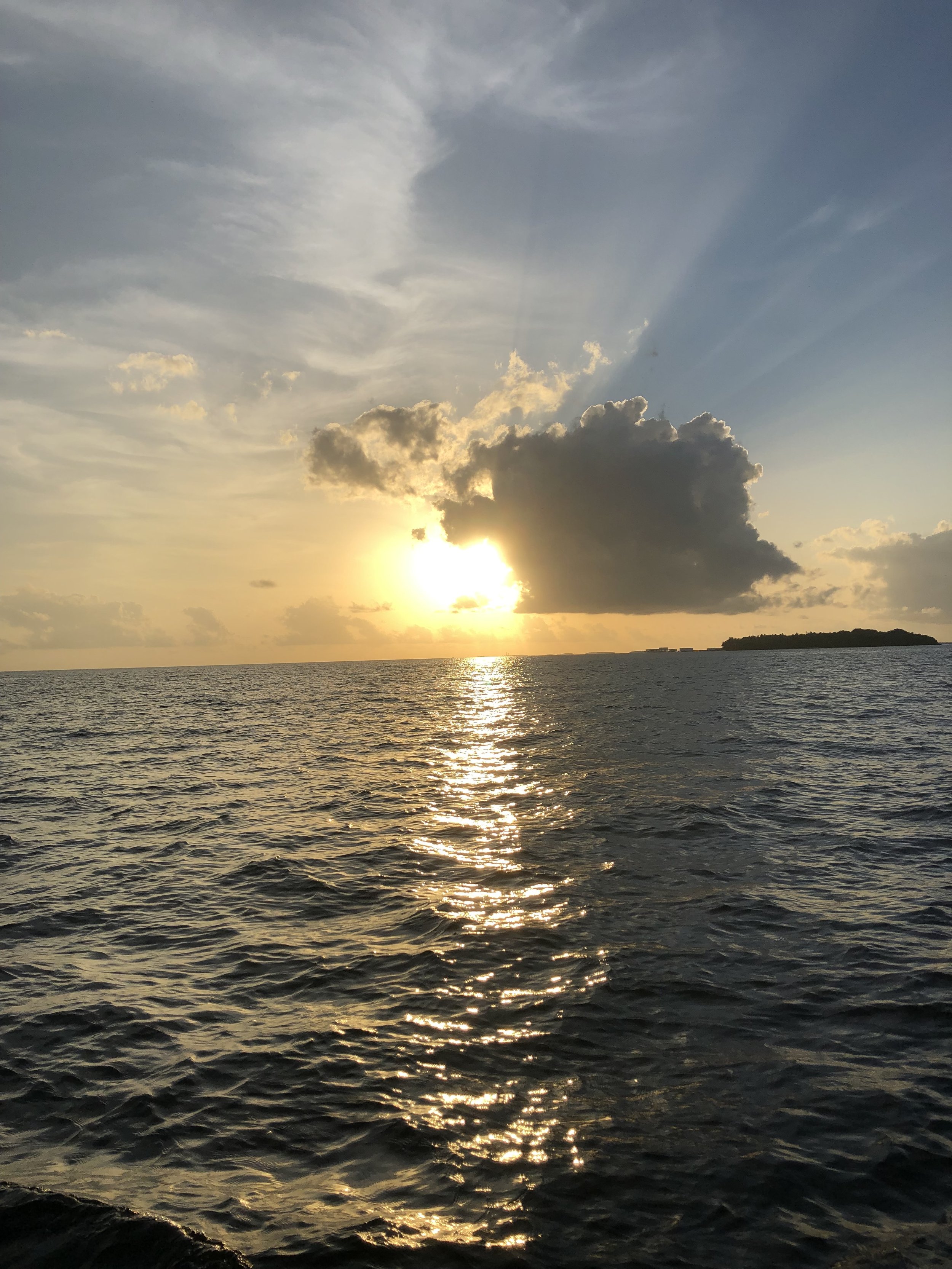
EDUCATION
Neuroplasticity is the ability of our brain to change structure and function from cradle to grave (Doidge, 2008), due to repeated neural activity. Dr. Carol Dweck’s (2017) research on mindsets has shown that a Growth Mindset supports and nurtures neuroplasticity since it enables lifelong learning through the belief that abilities can be developed, effort propels accomplishment and setbacks can be opportunities for growth.
“It is not befitting for anyone with knowledge to give up learning.”
Prophet Muhammad (peace be upon him)- Prophet of Islam 610 CE; “The Most Influential Person in Human History”; globally recognized as an eminent leader, statesman, administrator, educationist, and reformer

View full Project Gallery


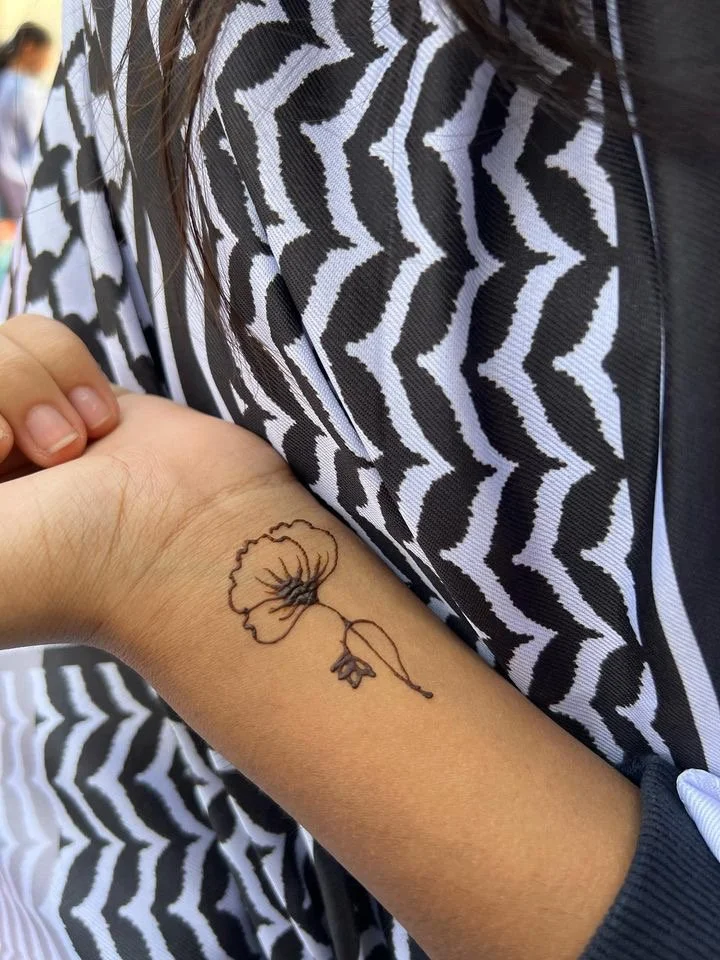



References
Doidge, N. (2008). The brain that changes itself: Stories of personal triumph from the frontiers of brain science. Penguin Books
Dweck C. S. (2017). From needs to goals and representations: Foundations for a unified theory of motivation, personality, and development. Psychological Review, 124, 689–719.
Fancourt D, Finn S. What is the Evidence on the Role of the Arts in Improving Health and Well-Being? A Scoping Review. World Health Organization Regional Office for Europe. http://www.euro.who.int/en/publications/abstracts/what-is-the-evidence-on-the-role-of-the-arts-in-improving-health-and-well-being-a-scoping-review-2019.
Hannemann, B.T. (2006). Creativity with dementia patients. Can creativity and art stimulate dementia patients positively? Gerontology. 2006;52(1):59-65. doi: 10.1159/000089827. PMID: 16439826.
Kern, M. L., Waters, L., Adler, A., & White, M. (2014). Assessing employee wellbeing in schools using a multifaceted approach: Associations with physical health, life satisfaction, and professional thriving.
Miller, L. (2021). The awakened brain the awakened brain: The new science of spirituality and our quest for an inspired life. Random House.
Newberg, A. B. (2012). Transformation of brain structure and spiritual experience. In L. J. Miller (Ed.), The Oxford handbook of psychology and spirituality (pp. 489–499). Oxford University Press.
Stuckey, H. L., & Nobel, J. (2010). The connection between art, healing, and public health: a review of current literature. American journal of public health, 100(2), 254–263. https://doi.org/10.2105/AJPH.2008.156497
Zaidel, D. W. (2014). Creativity, brain, and art: biological and neurological considerations. Frontiers in human neuroscience, 8, 389.

